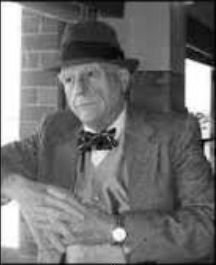William Armstrong Percy III (born December 10, 1933)

William Armstrong Percy III (born December 10, 1933) is an American professor, historian, encyclopedist, and gay activist. He taught from 1968 at the University of Massachusetts Boston, and started publishing in gay studies in 1985.
William was born to Anne Minor Dent and William Armstrong Percy, II, of the Mississippi Percy family. His mother was raised by her widowed uncle, the distinguished Memphis lawyer Dent Minor, scion of 17th-century settlers of those names in Maryland and Virginia. His great-uncle John B. Minor taught law at the University of Virginia from 1845 to 1895 and served for decades as dean of the Law School.
After graduating as valedictorian of Middlesex School (in Concord, Massachusetts) in 1951, Percy went to Princeton University, where he entered the Special Program in the Humanities. He struggled with the rejection and persecution of gays during the McCarthy years. At a time when conscription was still in effect, he volunteered for the U.S. Army. In his military stint, Percy studied Norwegian at the Army Language School. He worked as a French interpreter on loan to the Central Intelligence Agency on the island of Saipan.
Following the completion of his military service, Percy completed his B.A. in 1957 at the University of Tennessee. He spent a year obtaining a Certificato from the University of Naples. He went on to earn an M.A. from Cornell University, followed by an A.M., and in 1964 his Ph.D. from Princeton.
Percy taught at the University of New Orleans, Louisiana State University, and the University of Missouri at St. Louis for two years each. In 1968 he moved to the University of Massachusetts at Boston. After gaining tenure and promotion to full professor there, in 1975 Percy "came out" to colleagues. He joined the fight for equal rights for gays in 1982, and three years later began publishing in gay studies.
Paul Cartledge, of the University of Cambridge, described Percy's Pederasty and Pedagogy in Archaic Greece (1996) as the first work to try to go beyond Kenneth Dover's groundbreaking but homophobic Greek Homosexuality.
At the time he published Outing: Shattering the Conspiracy of Silence (1994), Percy announced that he was offering a bounty of $10,000 for the person who successful "outed" a living American cardinal, a sitting justice of the U.S. Supreme Court, or a four-star officer on active duty in the U.S. military. In light of the 2003 Supreme Court decision that decriminalized sodomy (Lawrence v. Texas), he amended his bounty offer to exclude a Supreme Court justice, but increased the bounty to $20,000 for a cardinal or a four-star officer.
Source: http://en.wikipedia.org/wiki/William_Armstrong_Percy_III
Further Readings:

A Companion to Greek and Roman Sexualities (Blackwell Companions to the Ancient World) by Thomas K. Hubbard
Series: Blackwell Companions to the Ancient World (Book 100)
Hardcover: 680 pages
Publisher: Wiley-Blackwell; 1 edition (January 7, 2014)
Language: English
ISBN-10: 140519572X
ISBN-13: 978-1405195720
Amazon: A Companion to Greek and Roman Sexualities
Amazon Kindle: A Companion to Greek and Roman Sexualities
Over the past quarter century, the study of Greco-Roman sexualities has become an important sub-discipline within classical studies, forming a fundamental component of the emerging fields of historical sexology and cultural studies. A Companion to Greek and Roman Sexualities presents a comprehensive collection of original essays relating to aspects of gender and sexuality in the classical world. Featuring contributions from more than 40 top international scholars, readings synthesize current work in the field while pointing to promising new directions for future scholarship.
Not restricted by narrow modern categories of sexuality, this collection offers a systematic and holistic view of various practices and discursive contexts of sexuality of the ancient world. Rather than treating Greece and Rome separately, each chapter covers both cultures with sensitivity to the continuities and differences between the two classical civilizations. Some chapters examine evidence through the lens of literary and artistic genres, evaluating each in terms of its own unique conventions. Other chapters address various social environments of sexual conduct (athletics, cult, the military, the banquet), and technical disciplines such as medicine, biology, magic, physiognomy, and dream interpretation. Drawing from a broad spectrum of theoretical perspectives, A Companion to Greek and Roman Sexualities expands and offers insights into our current understanding of sexuality and gender roles in the classical period, as well as their influence on more modern understandings of sexuality.
This journal is friends only. This entry was originally posted at http://reviews-and-ramblings.dreamwidth.org/3972862.html. If you are not friends on this journal, Please comment there using OpenID.